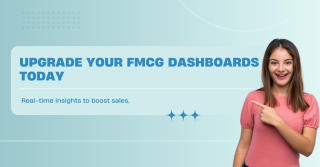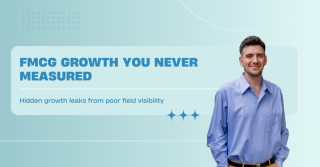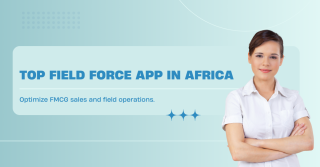Maximizing Your Revenue: Proven Strategies to Boost Sales Efficiency
_1738581405.png)
Are you ready to take your sales game to the next level? In a world where competition is fierce and customer expectations are higher than ever, maximizing revenue isn't just a goal—it's a necessity. One of the most effective ways to achieve this is by focusing on boosting sales efficiency. Imagine closing deals faster, reducing costs, and ultimately increasing profits without overwhelming your team. This blog post will explore proven strategies that can transform your sales process into a well-oiled machine. Whether you're leading an established team or just starting out, these insights can help elevate your performance like never before! Let’s dive in and discover how you can boost sales efficiency today.
Maximizing Your Revenue: Proven Strategies to Boost Sales Efficiency
Maximizing your revenue starts with understanding sales efficiency. This concept revolves around optimizing your processes to generate more from each effort. By focusing on how well resources convert into sales, you set the stage for substantial growth.
Implementing proven strategies can lead to impressive results. Consider refining your target audience and investing in training that empowers your team. Streamlining communication and feedback loops can also enhance performance.
Adopting technology plays a crucial role as well. Sales tools designed for automation and analysis free up time, allowing teams to concentrate on what truly matters—closing deals and nurturing client relationships effectively.
Understanding Sales Efficiency
Sales efficiency measures how well a sales team converts resources into revenue. It reflects the effectiveness of processes, strategies, and tools used in selling. Understanding it is crucial for optimizing performance.
At its core, sales efficiency evaluates the relationship between efforts and results. A high level means that less time or fewer resources are wasted while generating more revenue. This balance is essential for sustainable growth.
Companies need to assess their current practices regularly to identify areas for improvement. Streamlining workflows, enhancing training programs, and leveraging technology can all contribute to better outcomes in boosting sales efficiency.
Importance and Benefits of Sales Efficiency
Sales efficiency plays a crucial role in driving revenue growth. By streamlining processes, teams can focus on high-value activities that directly contribute to closing deals. This shift leads to better resource allocation and improved productivity.
Enhanced sales efficiency fosters stronger customer relationships. When sales representatives spend less time on administrative tasks, they can devote more energy to understanding client needs and providing tailored solutions.
Moreover, efficient sales operations reduce costs. With optimized workflows and quicker deal closures, businesses can maximize their profit margins. In a competitive market, these advantages create a significant edge over rivals striving for the same customers.
Calculating Sales Efficiency
Calculating sales efficiency is crucial for any business aiming to boost sales efficiency. It involves analyzing the relationship between revenue generated and resources invested in sales activities. A common formula used is: Sales Efficiency = Total Revenue / Total Cost of Sales.
To get a clearer picture, consider breaking down costs into fixed and variable components. This allows businesses to pinpoint areas where expenses can be reduced without sacrificing performance. Tracking these metrics regularly enables teams to adapt strategies as needed.
Using data analytics tools can simplify this process significantly. By visualizing trends over time, you gain insights that drive better decision-making, ultimately enhancing your overall sales strategy.
Key Metrics for Sales Efficiency
Key metrics are essential for understanding how well your sales team performs. One crucial metric is the Sales per Rep, which measures individual performance and helps identify top performers. This allows you to replicate their strategies across the team.
Another important metric is conversion rate. It tells you how effectively leads are turning into customers. A high conversion rate indicates that your sales process resonates with prospects.
Monitoring customer acquisition cost (CAC) can reveal valuable insights about your spending efficiency. Knowing how much it costs to acquire a customer enables better budgeting and resource allocation for future campaigns.
Strategies to Improve Sales Efficiency
Identify your target audience clearly. Knowing who you’re selling to allows for tailored messages that resonate and convert. This focused approach saves time and enhances the quality of interactions.
Invest in training your sales team regularly. Equip them with updated knowledge about products, market trends, and effective selling techniques. A well-trained team can navigate challenges more efficiently.
Utilize data analytics to monitor performance. Tracking key metrics helps identify areas needing improvement while uncovering successful strategies worth amplifying. Data-driven decisions lead to smarter actions that can significantly boost sales efficiency over time.
Sales Efficiency in Field Sales Teams
Field sales teams face unique challenges that impact their efficiency. With the constant movement between meetings and client visits, time management becomes crucial. Implementing a structured schedule can help team members maximize every interaction while minimizing downtime.
Technology plays a pivotal role in enhancing field sales efficiency. Mobile CRM tools allow reps to access information on-the-go, making it easier to track leads and manage customer relationships effectively. This real-time access empowers them to make informed decisions during engagements.
Additionally, ongoing training is vital for field sales teams. Regular workshops focusing on product knowledge and communication skills ensure that reps are equipped to engage clients confidently and address their needs promptly.
Sales Efficiency vs. Sales Effectiveness
Sales efficiency and sales effectiveness are often confused, but they focus on different aspects of the sales process. Sales efficiency is about doing things right—maximizing output while minimizing resources. It emphasizes speed and productivity in closing deals without wasting time or effort.
On the other hand, sales effectiveness centers on doing the right things. It's about understanding customer needs and aligning solutions accordingly to achieve higher conversion rates. Effectiveness looks at how well a team meets its goals, not just how quickly.
Both concepts are crucial for revenue growth. Balancing them enables organizations to streamline operations while ensuring that their strategies resonate with customers' desires.
Leveraging Sales Tools for Efficiency
Sales tools are essential for enhancing performance and boosting sales efficiency. They streamline processes, automate repetitive tasks, and provide valuable insights into customer behavior. With the right tools, your team can focus on what truly matters: closing deals.
Customer Relationship Management (CRM) software is a prime example. It centralizes data, making it easy to track interactions and manage leads effectively. This ensures no opportunity slips through the cracks.
Additionally, analytics platforms help identify trends in buyer behavior. Understanding these patterns allows businesses to tailor their strategies accordingly. By leveraging these technologies, companies can maximize productivity and drive revenue growth effortlessly.
Sales Efficiency Best Practices
To boost sales efficiency, focus on clear communication within your team. Regular check-ins and updates can eliminate confusion and ensure everyone is aligned with goals. This fosters a collaborative environment where ideas flow freely.
Utilizing data analytics is another best practice. By analyzing past performance, you gain insights into customer behavior and trends. This information enables targeted strategies that resonate with your audience.
Invest in training and development for your sales team. Continuous learning helps them stay updated on industry changes and enhances their skills. Empowered employees are more likely to engage customers effectively, ultimately leading to increased revenue.
Advantages of High Sales Efficiency
High sales efficiency translates to increased profitability. When your team sells more in less time, the revenue potential skyrockets. This improvement allows for better resource allocation and cost management.
Another advantage is enhanced customer satisfaction. Efficient sales processes lead to quicker response times and personalized interactions, fostering stronger relationships with clients. Happy customers often translate into repeat business and referrals.
Organizations benefit from improved employee morale. A streamlined process reduces frustration among sales reps, allowing them to focus on building connections rather than navigating cumbersome workflows. Engaged employees contribute significantly to a positive company culture and overall success in boosting sales efficiency.
Future Trends in Sales Efficiency
As we look ahead, the landscape of sales efficiency is evolving rapidly. Technology continues to drive innovation in how teams operate. Artificial Intelligence (AI) and machine learning are poised to revolutionize data analysis, allowing for more precise targeting.
Sales automation tools will enhance productivity by streamlining routine tasks. This gives sales professionals more time for building relationships with clients. Additionally, remote work trends are reshaping field sales strategies. Teams can now leverage virtual tools to connect and engage prospects seamlessly.
Customer-centric approaches will dominate future strategies. Listening to client feedback and adapting your approach will become essential for maintaining a competitive edge. By staying attuned to these trends, businesses can ensure they remain at the forefront of boosting sales efficiency while maximizing their revenue potential.









